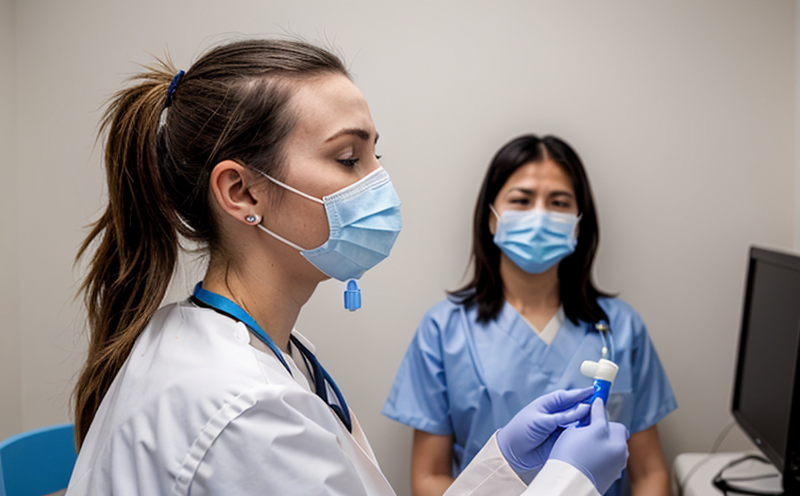Porcine Reproductive and Respiratory Syndrome Virus PRRSV Testing Validation Method Development Test
The Porcine Reproductive and Respiratory Syndrome Virus (PRRSV) is a significant pathogen causing severe reproductive failure, respiratory disease, and economic losses in swine populations worldwide. The accurate diagnosis of PRRSV infection is crucial for effective management strategies, including vaccination, herd hygiene, and biosecurity measures.
This service involves the development, validation, and optimization of diagnostic methods used to detect and quantify the PRRSV antigen or nucleic acid in various biological samples. Our team specializes in creating robust testing protocols that comply with international standards and ensure high specificity and sensitivity for accurate results.
The process begins by selecting appropriate specimen types such as serum, whole blood, or nasal swabs, depending on the clinical scenario and test objectives. Sample preparation involves standard procedures to extract viral nucleic acid or measure antigen concentration, followed by analysis using advanced technologies like PCR (Polymerase Chain Reaction) or ELISA (Enzyme-Linked Immunosorbent Assay).
Methodological validation includes multiple steps: initial feasibility studies, optimization of reaction conditions, comparison with existing methods, and comprehensive performance evaluation. This ensures that the developed tests meet stringent quality criteria, including linearity, specificity, reproducibility, and robustness.
The testing procedure typically follows these key phases:
- Sample Collection: Proper collection techniques ensure accurate representation of viral presence in swine populations.
- Preparation: Specimens undergo necessary processing steps to prepare them for analysis, including homogenization or extraction.
- Analytical Determination: The actual measurement using validated protocols and instrumentation.
- Data Analysis: Interpretation of raw data into meaningful diagnostic outcomes.
The final step involves reporting the results in formats suitable for stakeholder communication, ensuring clarity and actionable insights. This report can include quantitative measures of viral load or qualitative assessments indicating presence/absence of infection.
Our laboratory adheres to international standards such as ISO 17025 and EN ISO/IEC 15190, which guarantee the highest level of proficiency and reliability in our testing services. Compliance with these guidelines ensures that every test conducted meets rigorous quality assurance criteria.
Applied Standards
| Standard Code | Description |
|---|---|
| ISO 17025 | International standard for the competence of testing and calibration laboratories. |
| EN ISO/IEC 15190 | A European standard ensuring that test methods are robust, reproducible, and accurate. |
| ASTM E2318-17 | Standard practice for the development of in vitro diagnostic tests by polymerase chain reaction (PCR). |
Scope and Methodology
The scope of this service includes all aspects related to the validation of PRRSV detection methods. This encompasses not only the technical components but also considerations for clinical relevance, cost-effectiveness, and ease of implementation in real-world scenarios.
- Specimen Types: Serum, whole blood, nasal swabs.
- Instruments: PCR machines, ELISA kits, spectrophotometers.
- Safety Measures: Use of personal protective equipment (PPE), biosafety level 2 practices.
The methodology involves several critical steps:
- Select appropriate specimen types based on clinical necessity and analytical requirements.
- Develop optimized extraction methods tailored to the chosen specimen type.
- Validate the test method against known positive and negative controls using standardized protocols.
- Compare performance metrics with established reference tests.
- Ensure compliance with all relevant international standards.
This comprehensive approach guarantees that each validated PRRSV detection method meets both scientific rigor and practical applicability in veterinary diagnostic settings.





